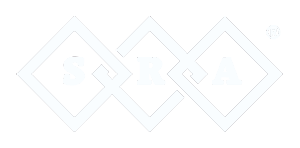by Elizabeth Brazeal
Integrated Healthcare Strategies, an independent healthcare consulting firm with offices in Kansas City, Minneapolis, and Dallas, has just released the results of their Spring 2012 Salary Increase, Incentive and Benefit Updates Survey. According to the survey, average 2012 salaries for hospital and health system executives are expected to increase 2.5 percent. Middle management and staff salaries will rise 2.8 percent and 2.6 percent, respectively.
As a recognized leader in the healthcare survey industry, Integrated Healthcare Strategies draws on over 20 years of compensation-survey experience. They conduct a wide variety of compensation surveys, collecting data on executive, director, and manager positions; staff and nursing positions; advanced practice provider positions; and medical director positions. IHS conducts the survey as a series; this is the sixth consecutive survey on this topic.
The survey, which examined the 2012 compensation plans for several hospitals and health systems, found that actual compensation increases were in line with the organizations’ planned 2011 budget. The surveyed hospitals were able to follow through and provide last year’s expected salary increases, and they expect to be able to do the same this year.
Nearly 90 percent of hospitals and health systems are either proceeding with salary increase schedules at the same rate as they did in 2011, or else increasing their 2012 budgets still more. Out of 75 percent of respondents who have incentive plans for executives, approximately 25 percent plan to increase those incentive plans this year. Out of that same 75 percent group, 90 percent will pay incentives based on executives’ performance in 2011.
Creating a career development plan outlining future goals must be the first step if you do not already have one. This plan should include strengths and weaknesses to help understand where your talents lie. Being able to use and grow your strengths is a key to success. Having a plan for how to acquire the knowledge you will need to cultivate these assets is easy to overlook, but is just as important. Personalizing how you stay current with your professional goals will help to narrow your focus on the vast array of resources available. Once a plan is in place, you can concentrate on topics related to your areas of interest. Information gathered should be relevant to both your career and your organization. Gaining knowledge that adds value should always be a priority. This will allow you to stay current and informed without wasting precious time on non-essential reading.Making the commitment
Staying current and up to date must be a daily commitment, which is often a task valued in theory and forgotten in practice. This is why you should devote at least 15 minutes every day to reading about current trends in your industry. It can be tough to allocate any amount of free time due to busy schedules, but it will pay off in the end. Specifying a certain time of the day for reading may help, such during a daily commute or immediately after lunch each day. The key is making the commitment. Many successful individuals spend much more than 15 minutes every day staying current. As you grow more familiar with the process, attempt to increase your daily dosage of reading material. You may also find opportunities to catch up on heavier reading while waiting at the airport or when stuck at the dentist’s office. Maintaining a file of earmarked articles for future reading can aid this process for some. But for others, this may cause reading material to simply accumulate and go unread. Developing a system that works for you is the best strategy. Still, this should be in addition to a daily routine of reading which serves not only as a source of valuable information but also as a reminder to look outward and ahead.
Sources for national issues and developments
Keeping a finger on the pulse of the industry at a national level is important. It is easy to find all of your attention focused on your local market, but this can be detrimental to your organization and career. Looming federal policy changes, for example, can have a direct impact. The reliance of healthcare on constantly evolving technologies mandates continual learning for administrators. Innovation is often inspired from external sources, sometimes even from other industries. According to Peter Drucker, “The entrepreneur always searches for change, responds to it, and exploits it as an opportunity.” While his statement aptly describes entrepreneurs, it also highlights the importance of foresight and adaptation. Awareness of industry-wide issues and developments is crucial to contending in a competitive market.


